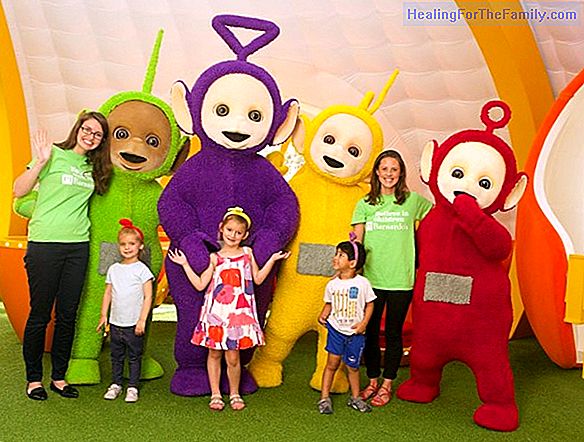Babies with constipation
Parents of babies with constipation should check the baby's stools and, in case of doubt, check with the pediatrician. There is no exact formula for evacuations or schedules to establish that a baby is constipated. It may be that a baby makes a bowel movement after each meal or lets a day or more pa
Parents of babies with constipation should check the baby's stools and, in case of doubt, check with the pediatrician. There is no exact formula for evacuations or schedules to establish that a baby is constipated. It may be that a baby makes a bowel movement after each meal or lets a day or more pass between each evacuation.
Your individual pattern of behavior will depend on the food you eat and drink, how active you are, and how quickly you digest the food and get rid of the feces. Keep in mind that babies fed exclusively with breast milk can go one day without going belly without this means they have constipation.
Treatment of constipation of the baby

A baby is constipated when observing the routine of his stools we see that they are less frequent than normal in him, that the stools are hard and dry, and that he has great difficulty in doing them, whatever the frequency. The treatment for constipation of the baby requires following some guidelines. Usually effective:
- Make him exercise. If the baby is already crawling, try to stimulate it to move from one side to the other. If he is still not crawling, try to move his legs up and down. When lying on your back, gently move your legs forward in a circular motion as if you were pedaling a bicycle.
- Give her a belly massage. Under the navel, about three fingers away, exert a gentle pressure, but firm with the fingertips to properly massage the baby. Press until you feel a firmness or mass. Keep that pressure soft, but steady for about three minutes.
- Bathe with warm water. The baby will feel relaxed after a bath with warm water and will favor intestinal transit.
- Change milk brand. If the baby is fed formula milk, and is constipated, ask the pediatrician if you can change the brand. There are formulas specially designed to help the intestinal tract.
- Change cereal, from rice to barley or oatmeal, or add mashed fruit or vegetables to your usual cereal, (when the baby is ripe for it).
- Add bran. Once the baby is already eating several solid foods, consult your pediatrician if you can increase fiber intake by adding a teaspoon of bran to your regular cereal. Reduc - Reduce foods that favor constipation
such as rice, bananas and cooked carrots, and try mixing your cereal with a little apple juice or plums, or a few tablespoons of plum, apricot or pear puree to stimulate the evacuation. - Give him enough water.
If the baby does not get enough fluid, he will become dehydrated and his system will react by absorbing more fluid from all the food and fluids he ingests, as well as from the droppings in his intestines. Consequently, it will make hard and dry stools with difficulty to expel them. Increase the amount of fluid the baby drinks to help keep your stools soft. If the child is more than 2 months old, start by giving him 30 ml of plum juice diluted in 30 ml of water, twice a day. As your constipation begins to improve, reduce it. Consult the pediatrician first, if the baby is only 2 months old or less. - Apply aloe vera lotion.
If the baby is expelling hard, dry stools that damage the delicate skin around the opening of the anus (you will see small lesions called excoriations or a little blood), apply aloe vera lotion on the area to help it heal . Do not forget to mention this to the pediatrician.












